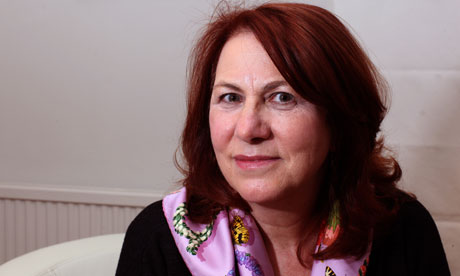
Waiting with the five other shortlisted novelists 12 years ago, as the chair of judges was announcing the winner of the 2000 Orange prize, I knew I wouldn't win because nothing that life-changing could possibly happen. And when I heard my name announced, with no speech prepared, and a bank of photographers at my feet shouting, "Linda! Over here!" I mumbled something about how very different the champagne, the setting (the V&A) and the evening dresses were from the business of writing which takes place alone, in uncertainty.
The news this morning that Orange is to end its sponsorship of the prize, set up in 1996 after anger in the publishing industry over the 1991 all-male Booker shortlist, is at first shocking until one remembers that the phone company doesn't actually donate the £30,000 prize money. That comes from a private benefactor. If a new sponsor can be found, all that will change is the name – and what matters is not what the prize is called, but what it represents. The claim that the Orange prize is sexist can be met by asking which literary prize, apart from the Nobel, places no restrictions on entry. There aren't any. Nationality, gender, subject matter, language – all put a fence around prizes.
What the Orange has done is to focus on who reads and what they read. Research by Orange revealed that 70% of fiction is read by women, yet prize shortlists are dominated by men. Why? The answer is not that women are writing inferior fiction, it is that their books are not being submitted. When I was shortlisted for the Booker in 2008, I was the only woman on the shortlist, one of only three on the longlist of 13. Challenging one of the judges about this I was told that this happened to be the ratio of female writers whose work was submitted by their publishers, who are limited to two titles plus previously shortlisted authors.
What the Orange prize has done in the past 16 years is to open up the literary landscape to new writing; to novelists with a wider international reach than the Booker (restricted to Britain and the Commonwealth). When Andrea Levy sent me a proof of her novel Small Island, about Afro-Caribbean immigration to Britain during and after the war, I read it and told her it would win the Orange. It did, and went on to sell a million copies worldwide. There proved to be a hunger for these kinds of stories among readers, which existing prizes seemed willfully to ignore.
What does winning mean? No one in their right mind would believe that there is an objective means of assessing the "best book" of any given year. We are not participants in the literary Olympics. Prizes are a product of a debate between judges sharing a common reading experience over a few months. To step up and receive the cheque and the statuette and believe you have written the "best" book is to be delusional. What winning means is money: not money to buy a diamond ring, but to be able to push aside everything else that interferes with writing books. To give up the day job, say no to journalism or teaching; to see your advance for the next book increase, your foreign rights sales grow; to be translated into other languages.
Prizes give one novelist a chance; a chance to go on writing, to produce a body of work, to do so without financial anxiety. It's an unfair lottery, but the level playing field is one on which many writers simply have to give up. Without a private income, writers can only survive on sales, and prizes mean seeing a novel that has sold 700 copies go on to sell 100,000. Unliterary facts, but the truth about why prizes matter and why the Orange prize matters.
Linda Grant won the Orange prize in 2000 for When I Lived in Modern Times. Her latest novel is We Had It So Good

